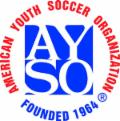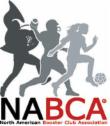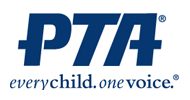Frequently Asked Questions
The board of directors is the governing body of a nonprofit organization. The responsibilities of the board include discussing and voting on the highest priority issues, setting organizational policies, and selecting and managing your coaching staff. Board members are not required to know everything about nonprofit management, but they are expected to act prudently and in the best interests of the organization. They approve operating budgets, establish long-term plans, and carry out fundraising activities.
KNPUSA recommends a board of at least 3 non-related members: President, Secretary, and a Treasurer. For tax exempt purposes, the IRS requires a minimum of three board members. The majority of the makeup of the board must be unrelated by blood or marriage. For example, if you have three board members that include a husband and wife, then you will need to add a minimum of two additional board members that are unrelated to each other and the other three board members. The purpose of this requirement is to avoid conflict of interest issues if the majority of the board were related.
No. This is a source of confusion for many organization administrators. "Non-Profit" and "Tax Exempt" are not interchangeable terms. Becoming a non-profit corporation does not exempt your organization from paying taxes. Applying for IRS tax exempt status is a completely different process from that of incorporating. If you have incorporated but not applied for tax exempt status, please contact us immediately so we may help you rectify this situation.
Additionally, the IRS requires that all Articles of Incorporation include a Purpose statement indicating that the organization limit its activities to the exempt purposes as described by IRS section 501(c)(3) Tax Code as well as a Dissolution clause stating that in the event of dissolution all assets will be distributed to another 501(c)(3) organization or a body of government. If your existing Articles of Incorporation do not meet these requirements, then a $59 surcharge will apply (plus any state fees) for KNPUSA to prepare an Articles of Amendment document and file it with your state’s Secretary of State office.
Although there are numerous qualification criteria, the following are the primary factors for youth organizations:
Organized - A 501(c)(3) organization must be organized as a corporation or an unincorporated association. The organization must have an organizing document in place such as articles of incorporation, articles of association, or organizational bylaws.
Operated - Your organization must be operated primarily for the education and enjoyment of your participants. Certain activities are strictly prohibited such as participation in political campaigns. Furthermore, the organization may not be operated for the benefit of private interests such as the founder or his/her family.
Exempt Purpose - To be exempt, an organization must have one or more exempt purposes stated in its organizing document. For example, youth sports leagues meet these criteria by offering amateur athletic programs for children under the age of 18.
There are numerous advantages for acquiring IRS 501(c)(3) tax exempt status that include the following:
1. The primary benefits enjoyed by a 501(c)(3) organization derive from its exemption from paying certain taxes. The tax exemptions include exemption from most United States federal and state income taxes and, generally, from sales tax on purchases. While the state income tax exemption is generally automatic, some states do require a separate application. The sales tax exemption certificate usually requires a state application once 501(c)(3) status has been obtained.
2. Although tax law provides deductibility of contributions for small organizations, the burden of proof for tax deductibility is on the donor. A small organization might choose to apply for 501(c)(3) recognition to save donors possible embarrassment and inconvenience during an audit.
3. Studies show that donors are likely to donate between 50%-100% more if their donation will be tax deductible.
4. Failure to apply for IRS tax exempt status undermines an organization's credibility with the public and potential sponsors as it won’t have the legitimacy and status of a real "non-profit." The benefits of Federal tax-exempt status are truly amazing. Your organization might find that 501(c)(3) recognition is an important part of the image it wants to convey. 501(c)(3) status demonstrates that your organization's management are capable and savvy leaders, which offers donors the additional assurance that their donations will be effectively allocated. Other benefits include the following:
- Contributions made to 501(c)(3) organizations are tax-free and exempt from federal taxation.
- Income earned by your non-profit is tax-free.
- Your non-profit has perpetual life so that it can continue operating in a tax-exempt status even after the original founders move on.
- Donors are able to make charitable contributions to your organization and receive a tax deduction on their tax return (donors pay no taxes on donations.)
- 501(c)(3) status qualifies your non-profit organization to receive some of the millions of dollars in private and public grant money. If you are not recognized as a 501(c)(3) organization, these foundations and philanthropic organizations will not allow you to submit a grant (request) for money.
- Being a 501(c)(3) will qualify your organization for participation in hundreds of governmental programs operated by federal and state agencies. The government will only allow nonprofit organizations with 501(c)(3) status to participate in these programs.
- Lower advertising rates in publications.
- Lower postal rates on mailings.
- Discounted web hosting from Internet Service Providers.
- Free radio and PSA announcements provided by local media.
Practically speaking, there are no disadvantages to having 501(c)(3) status. Normally the expense, upwards of $3,500 that most firms charge, is a major deterrent for organizations wishing to become 501(c)(3) certified. However, KNPUSA prepares all of the necessary application forms starting at only $399 plus the IRS application fee. In all likelihood, you'll recover this fee with increased donation amounts and the capability to receive grant funds. The second deterrent is the complex array of application forms and other requirements. This problem is alleviated as KNPUSA takes care of all of this for you for the one time low fee! Please visit our Fees section more information and current prices.
Yes. Although the majority of our clients are youth organizations, we offer our services to adult sport's organizations that meet the criteria described in the following paragraphs.
There are two types of adult level amateur athletic organizations that can qualify for tax-exempt status under the federal 501(c)(3) tax code. The first type is an organization that fosters national or international amateur sports competition but only if none of its activities involve providing athletic facilities or equipment. The second type is a Qualified amateur sports organization (discussed below). The difference is that a qualified amateur sports organization may provide athletic facilities and equipment.
Donations to either amateur athletic organization are deductible as charitable contributions on the donor’s federal income tax return. However, no deduction is allowed if there is a direct personal benefit to the donor or any other person other than the organization.
Qualified amateur sports organization–An organization will be a qualified amateur sports organization if it is organized and operated:
1. Exclusively to foster national or international amateur sports competition, and
2. Primarily to conduct national or international competition in sports or to support and develop amateur athletes for that competition.
The organization’s membership may be local or regional in nature.
"EIN", or Employer Identification Number, is a nine digit number that the IRS assigns to organizations and corporations. The IRS uses the number to identify taxpayers who are required to file various business tax returns. EINs are used by employers and organizations, including nonprofit associations.
This number is known by several different names - TIN, EIN, FEIN (short for taxpayer ID number, employer ID number, or Federal Employer ID number). An EIN is required prior to completing the 501(c)(3) application. KNPUSA can assist your league or team secure an EIN if you do not have one. Please refer to the Services section of our web site for more information.
Articles of Association - The Articles of Association is the founding document of an entity. They set forth, among other provisions, the purpose and main powers of the entity, voting rights of members, and limitations. It is similar to articles of incorporation, but more commonly used to refer to the founding document of a non-profit organization.
Bylaws - Bylaws are rules and regulations adopted by an organization for its internal governance. Bylaws detail the responsibilities, rights, and duties of directors and officers. At the organization's initial meeting, the bylaws are adopted.
The following elements need to be included in your Articles and Bylaws document:
- Name and location (city, county, and state) of organization
- Statement of exempt purpose
- Age of participants
- Membership details
- Board of directors and officer positions, length of terms, and list of duties
- Election details
- Finances and Reporting
- Indemnification provisions
- Meeting(s) criteria (types and frequency)
- Types of committees
- Dissolution clause
- Amendment procedures
- Conflict of interest policy
- Declaration signed by board members
Using KNPUSA's low cost services to acquire tax exempt status, there are probably very few organizations that wouldn't stand to benefit from acquiring 501(c)(3) status. Once you reach the rank of tax exempt status, you will find very quickly that an entire new world of revenue resources will be at your fingertips.
In our many years of assisting youth organizations through this process, we have yet to receive a single complaint from any of our clients who concluded that acquiring 501(c)(3) status was not a worthwhile endeavor.
Our staff is 100% confident that the benefits of becoming a 501(c)(3) organization by far outweigh any perceived or actual disadvantages. Although there is certainly no guarantee that your organization will secure more revenue through this status, your chances are much greater than they would if you did not acquire tax exempt status.
Once submitted to the IRS, it takes an average of 60 to 120 days to process an application, although it can take longer depending on the current volume of applications being processed. Approximately 25-33% of the applications they receive do not require further questioning and are processed in less than 90 days. However, depending on other extenuating factors, IRS processing can take much longer. For a detailed flowchart of IRS exempt application processing, please click here.
Once your organization is approved, you will receive an IRS Determination Letter . This is your one and only indication that you are officially a 501(c)(3). We suggest you make numerous copies of this letter and safeguard the original. Contrary to popular belief, there is no such thing as a "tax exempt number" Your tax id will remain as your original EIN. Your EIN on its own does not indicate whether or not you are tax exempt. Only your Determination Letter verifies your tax exempt status.
This is dependent upon when your organization was formed. If your organization submits its application to the IRS within 27 months of creation and is ultimately approved, the "effective date" of your organization’s tax exempt status will be retroactive to the date that your Articles of Association, or Articles of Incorporation were approved by your board of directors. This means that contributions that your organization received after formation, but before the IRS issued your exemption letter will be deductible. For organizations that were formed longer than 27 months ago, your tax exempt effective date will instead be the postage date when the application is mailed to the IRS.
Because there is, of course, a chance that your application for tax exempt status will be turned down, it is prudent to let your potential donors know that you do not actually have IRS approval yet and indicate that your 501(c)(3) application is pending.
While there are certainly a multitude of benefits to acquiring 501(c)(3) status, federal tax law also imposes certain responsibilities as well.
1. Record Keeping - Organizations are required to keep books and records detailing all activities, both financial and non-financial. Financial information, particularly information on sources of support (donations, sponsorships, grants, membership fees, etc.) is crucial.
2. Filing Requirements - Since your organization will be tax exempt, you will file annual information returns as opposed to a tax return that non-exempt organizations file. The following table details which IRS form your organization will utilize (click on the form type for sample):
| Annual Gross Revenue | IRS Form |
|---|---|
| < $50,001 | 990-N (electronic postcard) |
| $50,001 to $200,000 | 990-EZ |
| > $200,001 | 990 |
3. Disclosure Requirements - 501(c)(3) organizations must make their application and their 3 most recent annual information returns available to the public when so requested and without charge.
4. Charitable Contributions - 501(c)(3) organizations must provide a written acknowledgement for any single donation of $250 or greater before the donor can claim a charitable contribution on his/her federal income tax return.
In 18 states, organizations are automatically exempt from state income taxes once approved for federal tax exemption. In 26 states, you will be exempt from income taxes but you must file for it once approved for federal tax exemption. In the remaining 6 states there is no corporate income tax and no action is required. Please click here to review our state by state tax exempt application information.
Most youth sport's organizations (travel teams, leagues, and clubs), school band booster clubs, sport booster clubs, and PTOs/PTAs qualify for Internal Revenue Service (IRS) 501(c)(3) status, but fail to apply for it as required by federal law. In fact, many organizations operate as if they were tax exempt organizations, although no application for tax exemption was ever filed with the IRS. Still other organizations have incorporated as a non-profit corporation, but never filed for tax exempt status with the IRS. While most organizations that we encounter are capably operated by their volunteer staff, few appreciate the potential risk of financial liability to their volunteers because they or their predecessors failed to apply for tax exempt status.
Our PTO is tax-exempt automatically because the PTO is related to our public school.
This is true only if your PTO operates as a committee or club entirely under the school’s direct control. If your group’s money is held in a bank account owned by the school, using the school’s EIN, then your PTO is a committee of the school. In this case, you could argue that your PTO is covered by the school’s tax-exempt status. However, such a tight relationship sacrifices the independence that many PTOs desire. If the PTO has its own bank account, then it would need to establish its own tax exempt status separate from the school.
If we have 501(c)(3) status, we have to spend our account down to zero every year.
Not true. The IRS allows 501(c)(3) organizations to carry over as much money as its members see fit. You can also make and hold profit on any of your activities. “Nonprofit” means you can’t have shareholders who take money from the business, as a for-profit company does. It doesn’t prevent the group from making money to further its mission.
Our organization is too small to bother with filing for 501(c)(3) status.
The IRS expects any organization that regularly raises at least $5,000 of gross income each year to file for 501(c)(3) status. Note that the test is based on gross income, not net profit. If your revenue exceeds the $5,000 test, you should seriously consider filing. Otherwise, your organization is classified as a small business by the IRS and would be subject to federal tax on your group’s income. Penalties for not filing or late filing are $20 per day.
We have our own tax ID number, so we are tax-exempt.
Getting an EIN is just the first step in becoming an officially registered tax-exempt organization. If you cannot find proof that the organization ever filed an application for tax-exempt status, and you have never heard of IRS form 990, then your group probably does not have 501(c)(3) status.
A significant percentage of our clients had been operating for years and in some cases, decades, before learning that they did not have 501(c)(3) status. There are a myriad of reasons for these incorrect assumptions:
1. At some point in the organization’s existence, a board member may have attempted to apply for exemption and never completed the process. The misinformation perpetuated to future board members for years to come.
Operated - Your organization must be operated primarily for the education and enjoyment of your participants. Certain activities are strictly prohibited such as participation in political campaigns. Furthermore, the organization may not be operated for the benefit of private interests such as the founder or his/her family.
2. The organization applied for and received an Employer Identification Number. In the application they indicated that the organization was a Non-Profit and incorrectly thought this was all that needed to be done. In actuality, this is merely the first step in the process.
3. Many organizations falsely assume that because they are run by volunteers and don’t get paid that they are automatically tax exempt. Unfortunately, this is incorrect. The only means to attain 501(c)(3) is to apply for it through the IRS.
Free Tax Exempt Status Check
If you’re unsure of your tax exempt status, please click here and we’ll verify your status for free.
KNPUSA can help you receive tax exempt status retroactive to your date of formation.
Affiliations
KNPUSA works with all types of non profit organizations including youth sports teams, clubs, and leagues, PTA/PTOs, and booster clubs including organizations that are affiliated with the following national governing organizations:
















